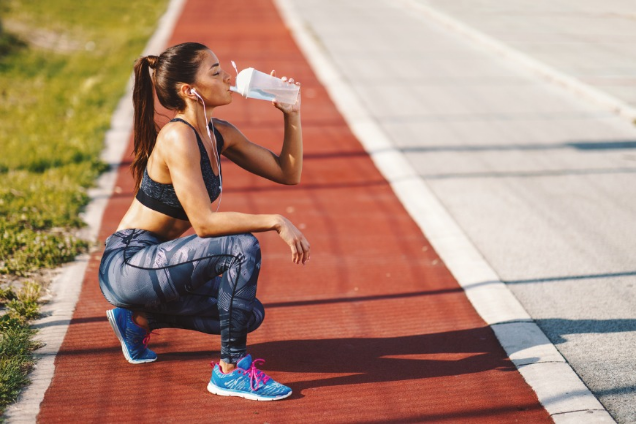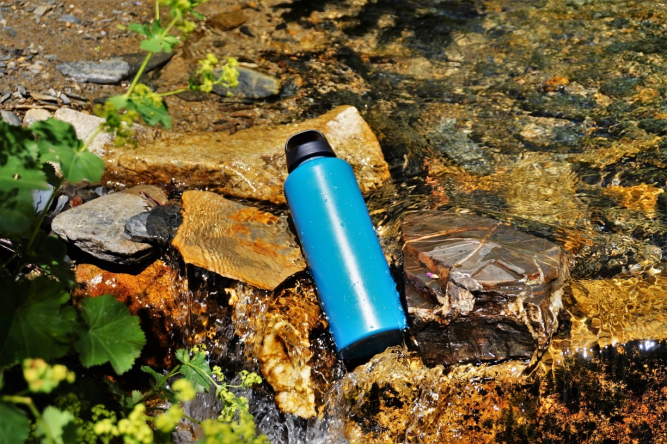Why Athletes Should Choose Purified Water: Clean Hydration for Peak Performance
For athletes and fitness enthusiasts, hydration is more than just a daily routine—it’s a critical part of performance, endurance, and recovery. While many focus on protein shakes, pre-workout formulas, and electrolyte supplements, one fundamental factor often goes overlooked: the quality of the water you drink.
Whether you're a professional athlete, a marathon runner, or someone who enjoys weekend sports, purified water should be at the top of your hydration checklist. In this article, we'll explore why athletes should choose purified water, how it impacts physical performance, and what makes it better than regular tap or bottled water.
1. The Importance of Hydration for Athletes

Water makes up over 60% of the human body and plays a central role in physical activity. For athletes, hydration is vital to:
- Regulate body temperature
- Maintain electrolyte balance
- Transport nutrients and oxygen to muscles
- Support joint lubrication and flexibility
- Enhance mental focus and decision-making
- Speed up recovery after intense training
Even a 2% loss in body water can result in decreased performance, fatigue, cramps, and slower reaction times. Proper hydration ensures your body can meet the demands of high-intensity exercise—and the quality of that water matters.
2. What Is Purified Water?
Purified water is water that has been filtered or processed to remove impurities, contaminants, and harmful substances. It typically goes through technologies such as:
- Reverse Osmosis (RO)
- Distillation
- UV Purification
- Activated Carbon Filtration
- Ultrafiltration (UF)
The result is clean, clear water free from:
- Bacteria, viruses, and parasites
- Chlorine and harmful chemicals
- Heavy metals like lead and mercury
- Pesticides and nitrates
- Microplastics and sediments
3. Why Tap Water May Not Be Good Enough for Athletes
While tap water is regulated in many countries, it can still contain trace levels of contaminants that may affect athletes more significantly due to their higher water intake and sensitive physiological states.
Potential problems in tap water:
- Chlorine – Can alter the taste and affect gut microbiome
- Lead and heavy metals – Linked to long-term health risks and poor recovery
- Microplastics – Emerging health concern with potential hormonal impacts
- High TDS (Total Dissolved Solids) – May alter electrolyte balance or increase the body’s filtering burden
For athletes consuming 2–4 liters of water daily, even small contaminants can accumulate or affect performance over time.
4. Benefits of Purified Water for Athletes
Better Hydration Efficiency
Purified water is free from impurities that may inhibit absorption. With fewer dissolved solids and contaminants, it’s easier for the body to absorb and use the water to regulate temperature and fuel performance.
Improved Taste = More Hydration
Let’s face it—if water tastes bad, you’ll drink less of it. Purified water often tastes cleaner and smoother, encouraging athletes to stay hydrated throughout training sessions.
Safer for High-Volume Consumption
Athletes may drink twice as much water as non-athletes. Purified water ensures that you’re not ingesting harmful substances along with your hydration, especially over months and years of intense training.
Supports Recovery and Detoxification
During exercise, the body produces metabolic waste, and water helps flush it out through urine and sweat. Clean water supports better liver and kidney function, which aids in post-exercise recovery and reduces inflammation.
Reduces Gastrointestinal Risks
Drinking contaminated or hard water during workouts—especially in hot environments or travel situations—can lead to:
- Stomach cramps
- Bloating
- Digestive distress
- Diarrhea
Purified water minimizes the risk of these issues, keeping your gut healthy and performance uninterrupted.
5. Purified Water vs. Bottled Water
Many athletes reach for bottled water thinking it's the cleanest option. But did you know:
- Not all bottled water is purified—many brands use filtered tap water
- Bottled water can contain microplastics and chemicals from the packaging
- It’s expensive and not eco-friendly
Instead, investing in a home water purifier ensures a reliable, cost-effective, and sustainable source of clean hydration.
6. When to Use Electrolytes with Purified Water
While purified water is excellent for hydration, athletes who engage in long-duration or high-intensity exercise may need to replenish lost electrolytes like sodium, potassium, and magnesium.
Purified water can serve as a base for electrolyte solutions or sports drinks, allowing athletes to:
- Customize concentration
- Avoid added sugars and artificial ingredients
- Ensure clean hydration without contamination
7. Travel Tip: Stay Safe with Portable Water Purifiers

Athletes who travel for competitions or train outdoors may not always have access to purified water. In such cases:
- Use a portable RO or UV purifier
- Carry filter bottles for safe hydration from any source
- Avoid drinking unfiltered water in unfamiliar regions
Clean water during travel prevents illness, fatigue, and dehydration—ensuring your training stays on track.
Conclusion: Fuel Your Body with the Purest Water
As an athlete, every detail of your lifestyle contributes to your performance—and hydration is no exception. While you focus on training, nutrition, and recovery, don’t overlook the quality of your water. Purified water offers:
- Better absorption
- Fewer contaminants
- Enhanced taste
- Safer high-volume consumption
- Long-term health protection
Make purified water a core part of your fitness fuel—because when your body performs like a machine, it deserves the cleanest, highest-grade fuel available.
--------------------------------------------------------------------------------------------------------------
SANAKY VIETNAM., CO LTD - Manufacturer of Chest Freezer - Upright Cooler, Transformer, RO Water Purifier…
Website: www.sanaky-vn.com
 Vietnamese
Vietnamese  English
English  Chinese
Chinese  French
French  Spanish
Spanish  Russian
Russian  Arabic
Arabic  Portuguese
Portuguese